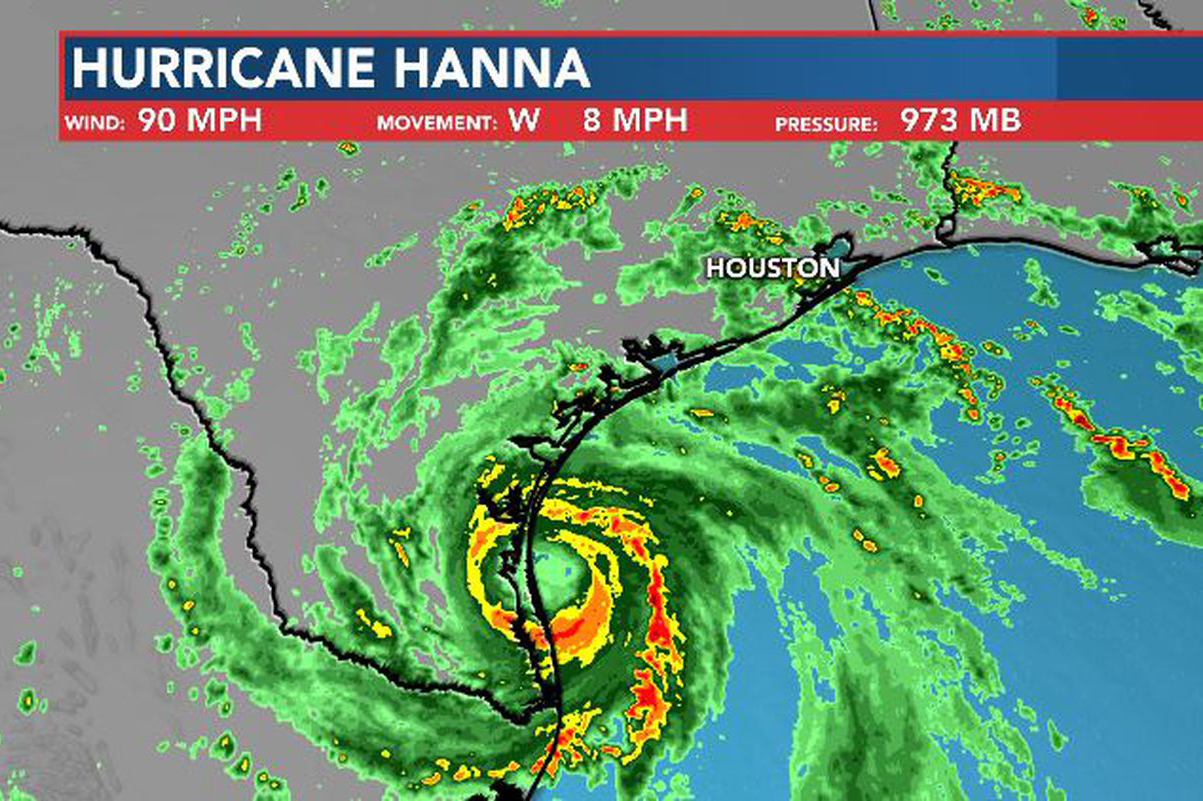By Marci McPhee, JustServe Specialist, San Antonio East Stake
Feeling the urgency to help with recent storm damage, the San Antonio East Stake sprang into action. Hurricane Hanna hit the Rio Grande Valley and Corpus Christi on Saturday, July 25th with 90 mph winds and up to 18 inches of rain, knocking down trees and tearing off roofs, with more rain coming. Tarps needed to be installed to try to salvage homes from further damage. Plenty of cleanup help would be needed in the months to come, but the tarps were urgent. Service teams were ready to go in the area, prepared to assist those in need – but first they needed help identifying and prioritizing the survivors. This is where Crisis Cleanup comes into play. They match the need for clean up with work crews when the time is right. For example, one caller into Crisis Cleanup said: “Relief workers can take their time. There is still 11 inches of water in the house. Nothing can be done until the water goes down.”

On Tuesday morning, July 28, Crisis Cleanup executive director Aaron Titus asked the San Antonio East Stake President, James Mears, to recruit volunteers to staff the hotline. President Mears sent out the call for volunteers. Early volunteers jumped in, watched training videos, and cleared their schedules to help. On Wednesday morning, the hotline opened –- less than 24 hours from the time that the request came into the stake. A volunteer staffing the hotline said: “One guy lost his entire house except for one room, and they are all in that room. My heart goes out to them. It could be me making that call for help.”

Hurricane survivors called the hotline and reported damage, which helped volunteers on the ground know where help was needed (tarping leaking roofs, muck out, mold remediation, tree damage, debris removal, etc.). One survivor took an optimistic look at the situation they found themselves in: “It’s time for spring cleaning anyway, I guess. Since we’ve been in quarantine, the kids wear the same 2-3 outfits, just hanging around the house. They outgrew the rest of their clothes anyway.” Hotline volunteers worked from their homes, answering their own cellphones which were privately linked to the hotline, then entering information into the CrisisCleanup.org system.
Just a few calls trickled in at first while the hotline information was distributed to the areas hardest hit, but the call volume quickly exploded into a torrent. Volunteers reported phone calls back-to-back during their shifts. After hours, calls poured in nonstop as quickly as one per minute, making a LOT of return calls. Aaron Titus said, “Disasters are overwhelming. If it’s not overwhelming, it’s an inconvenience, not a disaster. If you’re feeling overwhelmed, you’re probably doing it right.” One volunteer had a very overwhelming call. They asked: “One survivor called to report that her entire family compound – five houses in a row on the same street – is demolished. She lived in one, her mother in the next, her brother in the next, and so on. Do I enter that as one case or five cases?”

A total of 37 members of the East Stake and “furloughed” temple workers in Cibolo Valley and Hill Country Stakes volunteered from July 29th and will continue through August 21st, offering hundreds of hours of service. This was a perfect time to involve temple workers, as they are not able to do their normal shifts at the San Antonio Temple.
This was not the first time that members of the East Stake volunteered on the hotline. Some volunteers had served before, responding to previous floods in the Valley, the devastating Hurricane Michael in Florida, and wildfires in Colorado. Created for Hurricane Sandy in 2012, Crisis Cleanup describes what they do as “a collaborative disaster work order management platform, coordinating the efforts of 1800+ organizations. Some 80,905+ homes and businesses have been cleaned up so far – all free.” Crisis Cleanup estimates that the value of services is $46,929 per day. One hour on the phone saves 29.5 hours in the field, representing a savings of about $2000 per hourspent on the phone.

As Hurricane Hanna needs decreased, volunteers helped out with survivors of Hurricane Isaias, which hit the Carolinas and the Eastern seaboard, as well as damage from straight-line winds from Iowa to Ohio (called “Derecho”). These efforts will continue through at least August 28th. Local volunteers were not the only people on the battlefield; Crisis Cleanup actively recruited volunteers from multiple states to staff the hotline.
Ross Arroyo from Crisis Cleanup said to local volunteers, “I don’t think you know just how much Crisis Cleanup works ONLY because of people like you who step up and make things happen. Thank you again for being such an awesome part of the team.” Aaron Titus, also from Crisis Cleanup, expressed similar gratitude: “You’re amazing. We love you. We appreciate your willingness to help strangers affected by disasters.”

A volunteer expressed appreciation, saying: “Being able to talk with and help people directly affected by hardship is immensely rewarding personally and is certainly in keeping with our Savior’s mandate to love and lift our neighbors. Thanks for the opportunity to minister to those in need.” Another volunteer said: “I appreciate what I learned in the training that sometimes the most important thing we can do is listen. Certainly, many need a listening ear as well as helping hands in these difficult circumstances.” Many volunteers said they felt the appreciation of those survivors that were helped, many of whom have lost so much. They also felt the appreciation of the Lord Jesus Christ for their service to His children.
